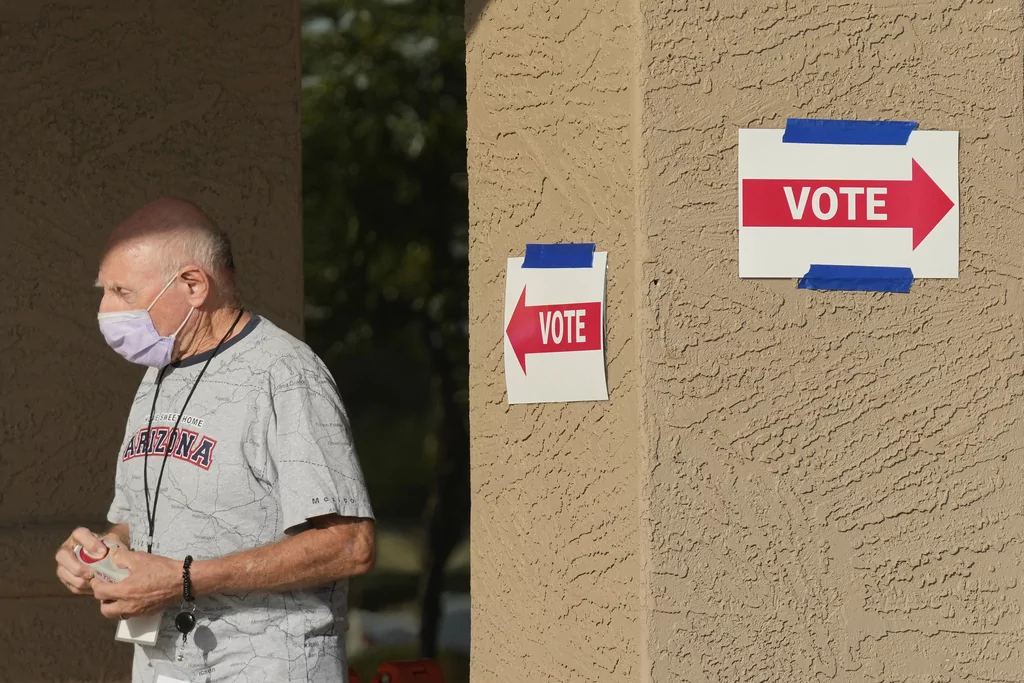
Republican Attorneys General Kris Kobach of Kansas and Patrick Morrisey of West Virginia filed an amicus brief joined by 22 states asking the Supreme Court to halt a lower court ruling that would force Arizona to allow people to register to vote without having to prove their U.S. citizenship.
The brief, which was made public on Monday, supports the Republican National Committee‘s emergency petition in response to an appeals court decision that blocked Arizona from enforcing its law, which requires documentary proof of citizenship to participate in federal elections by mail or in person.

“It’s about safeguarding the integrity of our elections — the heart of our democratic process,” Morrisey said in a statement. “It’s really very simple: you should not be allowed to vote if you’re not a United States citizen, and having proof of your citizenship is vital in making sure we conduct free, safe and lawful elections.”
The RNC is seeking a ruling over the swing-state dispute by Thursday, the deadline to resolve the litigation before ballots are printed. Former President Donald Trump, the Republican nominee, claimed rampant voter fraud in 2020 led to his loss to then-candidate Joe Biden in Arizona by nearly 11,000 votes, prompting monthslong efforts to audit the results that did not lead to any substantial evidence of fraud.
Although Arizona’s challenged law from 2022 is not in effect pending any action from the Supreme Court, its enactment would require the state to reject the vote of anyone who registers using a state form without showing proof of citizenship before casting an initial ballot.
Last month, a panel on the U.S. Court of Appeals for the 9th Circuit halted a district court ruling that blocked the law from taking effect. But a different panel revised the earlier ruling and is now allowing Arizonans to register to vote in federal races without the proof of citizenship requirement.
Republicans see the law as an effective way to deter unlawful voting by noncitizens, while proponents of the challenge, including civil rights groups and the Biden Justice Department, say the law could disenfranchise “thousands of voters who have already registered to vote using the federal form,” according to a recent court filing.
The question pending before the justices invokes the 2013 Supreme Court ruling that held the National Voter Registration Act of 1993 preempts Arizona from requiring citizenship proof for voter registrants applying using a federal form.
At the time, Justice Antonin Scalia wrote the act “precludes Arizona from requiring a federal form applicant to submit information beyond that required by the form itself.” Justices Clarence Thomas and Samuel Alito, two of the six members who form the current 6-3 conservative majority on the court, dissented from Scalia’s decision at the time.
One portion of the latest brief led by Kansas and West Virginia tells the Supreme Court that their 2013 decision should not be read to “limit States’ ability to treat voter registration as a voting qualification.”
The Republican attorneys general wrote that “there is much reason for the Court to either overrule or cabin that decision, which ‘brushes aside the constitutional authority of the States and produces truly strange results,’” quoting part of Alito’s dissent from the 2013 decision.
CLICK HERE TO READ MORE FROM THE WASHINGTON EXAMINER
Additionally, the brief argues that granting the application to uphold Arizona’s 2022 law does not require overruling the 2013 Supreme Court decision, although the conservative states contend the justices “should certainly do so at some point.”
The petition has been submitted to liberal Justice Elena Kagan, who handles matters from the 9th Circuit. Justices could act as early as this week over the dispute.




